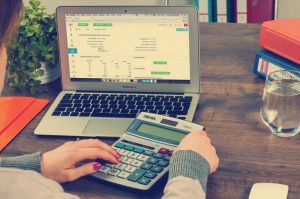 When running your startup business, sooner or later you’re going to want to see how you can cut back on spending and increase profit. There are multiple ways of doing this, but one of the most effective methods to save money is by claiming your expenses.
When running your startup business, sooner or later you’re going to want to see how you can cut back on spending and increase profit. There are multiple ways of doing this, but one of the most effective methods to save money is by claiming your expenses.
Any Corporation Tax you pay for your business is calculated after your expenses have been claimed. Recording your expenses accurately will mean that you end up paying less in tax.
Most of what you buy for your business can be claimed as an expense. This includes some services and a few ‘personal’ items too (we’ll go into more detail on that later). In general, if you’re paying for something that is solely for your business, you can most likely claim it as an expense.
Expenses can be complicated, and you WILL need to keep track of all your receipts and any invoices you receive. The easiest way to keep track of your expenses is by speaking to an online accountant and using a cloud-based accountancy software (like the accountancy app provided by Zooconomics). Having an online accountant for your startup business will mean you can take control over your own finances while also having access to the expert knowledge you will need to make money back from your expenses.
What Can I Claim as an Expense?
This is a list of expenditure that HMRC will normally follow:
- Accountant’s fees, including bookkeeping fees
- Any form of advertising, including business cards and brochures
- Agent’s commission
- Bad debts (as long as they’re included in your turnover)
- Bank charges
- Minor repairs, including lightbulbs, fuses, locks and plugs
- Casual labour (check whether this should be paid for PAYE)
- Computer consumables, including CD’s, memory sticks and external hard drives
- Courier and delivery charges
- Data protection registration and renewal fees
- Workwear, including laundering and maintainance
- Gifts to charity and customers costing up to £50 (must bear the business name)
- Heating and lighting
- Hire and lease
- Hotel accommodation (only when used for business)
- Insurance, including office and business property policies
- Motoring, including breakdown, repairs, car hire, petrol (make sure to keep a record of your total business mileage) and parking
- Newspapers and journals, as long as they’re related to your work
- Property, including repairs, cleaning and insurance
- Photocopying and printing
- Postage
- Purchase of stock and materials
- Recording equipment
- Removal expenses
- Research assistance and materials
- Royalties
- Secretarial assistance (to be paid through PAYE)
- Seminars
- Computer software, including web domain registration and hosting fees
- Staff welfare, including first aid, food/drink and Christmas parties
- Subscriptions to professional bodies
- Meals. All meals can be claimed while overseas. Evening meals can be claimed while on tour in the UK, daytime meals can be claimed while travelling for business
- Subcontractors
- Telephone, both landline and mobile
- Travel, provided it’s for business use. Personal travel from home to office does NOT count as an expense
- Use of home as an office
- Wages and salaries, to be paid through PAYE
- Warranties
- Miscellaneous expenses (requires a full description of each item and why you’re claiming it for your business)
Got all that?
This list isn’t definitive. There are thousands upon thousands of different items and services which can be claimed as expenses. It can be quite overwhelming, and that’s why our online accountants are here to help.
If you’re looking for expert accountants for startup businesses, send us your details and we’ll give you a quote for an online accountant.
For more information on accountants for startup businesses, call 0800 0460 560
